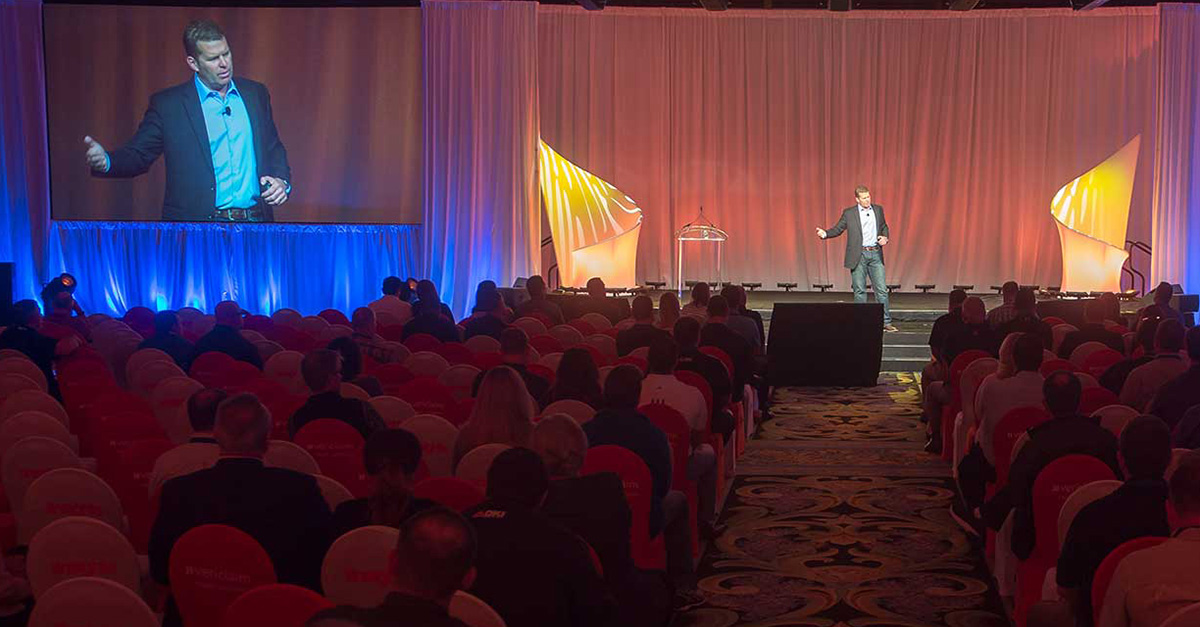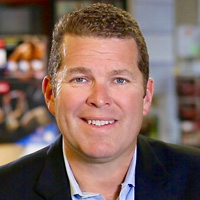Keynote speakers play a crucial role in building unstoppable leaders by imparting valuable insights, sharing personal experiences, and offering actionable strategies. I'd like to share more about how I go about building unstoppable leaders and teams, starting with what it means to be unstoppable.
Being unstoppable is more than just being highly successful or achieving one's goals. It's a mindset that allows individuals and teams to overcome obstacles, push through challenges, and continue moving forward toward their vision. Being unstoppable means having the determination, resilience, and flexibility to adapt in the face of adversity.
What sets apart those who amaze themselves with their accomplishments from those who never reach their full potential? It all comes down to mindset—a blend of attitudes and beliefs that shape our behaviors and ultimately drive our actions, yielding results. When we examine every aspect of our lives, we find that it can be distilled into two fundamental elements: decisions and the subsequent actions that arise from them.
Let's discuss three of the unstoppable qualities I foster in audiences—resilience, adaptability, and emotional intelligence. These are brief and recent examples of just a few of the several topics and tools I use in helping organizations be unstoppable. Keynotes become truly compelling when the audience is not only engaged in listening, but also inspired to embrace a new tool that they believe can lead to success. The following tools have a well-established track record of delivering positive outcomes.
Resilience
Resilience is the ability to bounce back from setbacks, overcome challenges, and persevere in the face of adversity. It's an essential quality for leaders because they face constant changes and obstacles on their path to success. This topic is highly sought after in leadership training and development, as it's a critical element for creating strong leaders and teams who can thrive in any environment.
To build resilience, it's important to cultivate a growth mindset—the belief that one's abilities and intelligence can be developed through hard work and dedication. This allows individuals to view challenges as opportunities for growth rather than insurmountable obstacles. Additionally, practicing self-care and having a strong support system can also contribute to building resilience.
Example: A large automotive accessory company in the US sought my assistance in fostering resilience among their teams during a significant transition in senior leadership. At the heart of my keynote address was a powerful tool I developed as a Navy SEAL platoon commander, known as an Outcome Account. This invaluable tool empowers individuals to objectively evaluate the positive and negative consequences of their actions, or lack thereof. Furthermore, it enables people to forge an emotional connection with their desired outcome, while acknowledging the sacrifices required to achieve it.
Outcome Accounts can be used for any goal, but I find this tool particularly valuable when pursuing a Milestone Goal. These ambitious goals require persistent effort over months, if not years. During this period, it's natural to experience setbacks and challenges that can test one's resilience. By regularly revisiting the Outcome Account, individuals can stay connected to their purpose and motivation, reminding them of why they are persevering through the tough times. Here's how an Outcome Account works. In the example above, the senior leaders were taught how to use Outcome Accounts to help them stay resilient during a time of change and uncertainty.
Adaptability
Adaptability is the ability to adjust and thrive in changing environments. In today's fast-paced world, change is constant, and leaders must be able to adapt quickly to stay ahead of the game. This quality allows leaders to pivot when necessary, take advantage of new opportunities, and continue to move forward.
To foster adaptability, leaders can practice mindfulness and remain open-minded to new ideas and perspectives. They must also be willing to step out of their comfort zone and embrace change rather than resist it.
Example: A major US military contractor enlisted my services to conduct a workshop on cultivating an adaptable mindset. In the military industry, where projects can span over 30 years, one of the greatest hurdles is fostering a culture of openness and adaptability to embrace emerging technologies while constantly pushing the boundaries of innovation. During the workshop, I presented a potent tool called the Belief Loop. This framework offers insight into the intricate relationship between thoughts, emotions, and events. Your beliefs influence your perception of a situation, which in turn affects your emotional response and subsequent actions.
Innovation often stagnates when team members become anchored to beliefs that hinder their ability to innovate (it’s easy for anyone to stagnate on a 30-year project!). The Belief Loop, encompassing the principles of ICAN, empowers teams to consistently identify and overcome limiting beliefs that may impede their progress in achieving groundbreaking innovation outcomes. The acronym ICAN stands for:
- Identify the beliefs that hold you back
- Challenge dysfunctional beliefs
- Assess the evidence to support alternative beliefs
- Neutralize the negative belief and put new ones in action.
ICAN is a continuous loop, like the Belief Loop. Identifying and challenging beliefs requires self-awareness and the ability to recognize when your own beliefs may be limiting your potential.
In this example, the military contractor recognized the need to adapt and innovate to stay at the forefront of their industry. By implementing tools like the Belief Loop, they were able to foster a culture of adaptability within their teams and push boundaries that ultimately led to innovative solutions for their projects.
Emotional Intelligence
Emotional intelligence is the ability to understand and manage one's own emotions, as well as effectively communicate and empathize with others. It plays a crucial role in effective leadership by allowing leaders to build strong relationships, resolve conflicts, and motivate their team.
To enhance emotional intelligence, leaders can practice self-reflection and self-awareness, actively listen to others, and seek out diverse perspectives. They must also be able to regulate their emotions and respond appropriately in different situations.
Example: One of the largest public steel mills in the world hired me, not only to give a company-wide keynote, but also to work with their eight senior leaders representing both union and executive management. One of the greatest obstacles we faced was establishing a culture of effective communication, where individuals truly felt listened to and comprehended. The way leaders communicate plays a pivotal role in cultivating trust and fostering teams that excel. A tool that I utilized throughout the entire company, and which serves as the foundation for my second book, "UNSTOPPABLE TEAMS," is known as the CARE Loop. This powerful tool provides a variety of exercises and techniques to enhance team performance.
Trust forms the foundation of any successful team; without it, a team cannot thrive. By leveraging the CARE Loop to enhance Emotional Intelligence (otherwise known as emotional quotient or EQ), leaders not only establish trust, but also provide guidance, foster collaboration, and nurture ownership. Key exercises such as "Gratitude and Gifts," Active Listening, CLEAR-ing, and Effective Debriefing, played a pivotal role in improving the team's mutual EQ and, consequently, their effectiveness as leaders. Over the course of our 18-month collaboration, the once-fragmented group evolved into a tightly-knit team, working hand-in-hand to enhance quality, safety, and productivity levels.
Be Unstoppable
Keynotes, breakout sessions, workshops, coaching, and courses are the different ways I seek to inspire others to go beyond what they originally thought possible. I use the term "Unstoppable" because to become unstoppable, one must have faced moments of being stopped. I am often hired for that exact reason—a team, company, or organization is finding themselves stuck. The properly-tailored keynote can be a catalyst for change and help people realize they more powerful than they realize.
I would be honored to have a discussion on how I might be able to help you and your organization be unstoppable.

